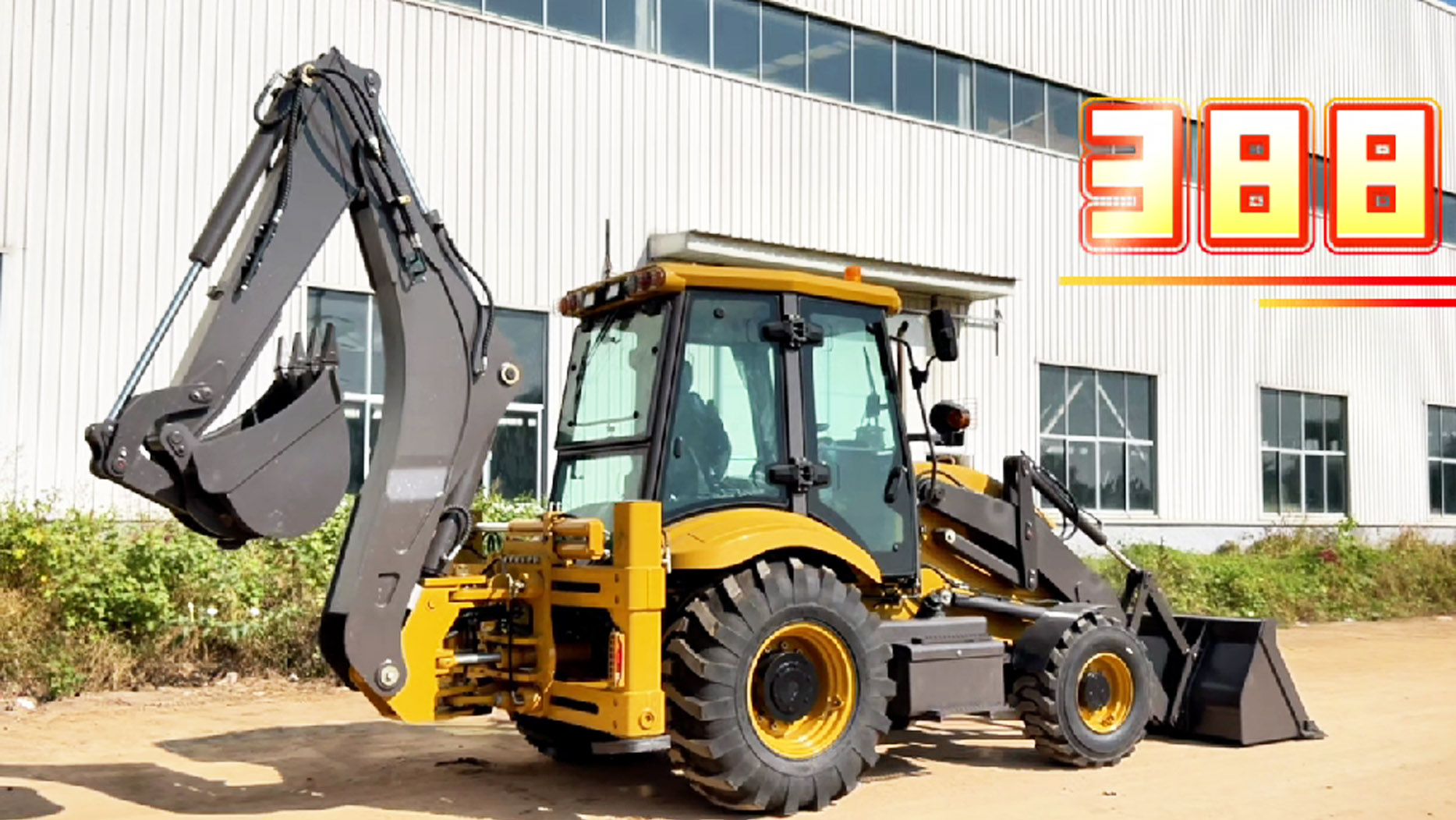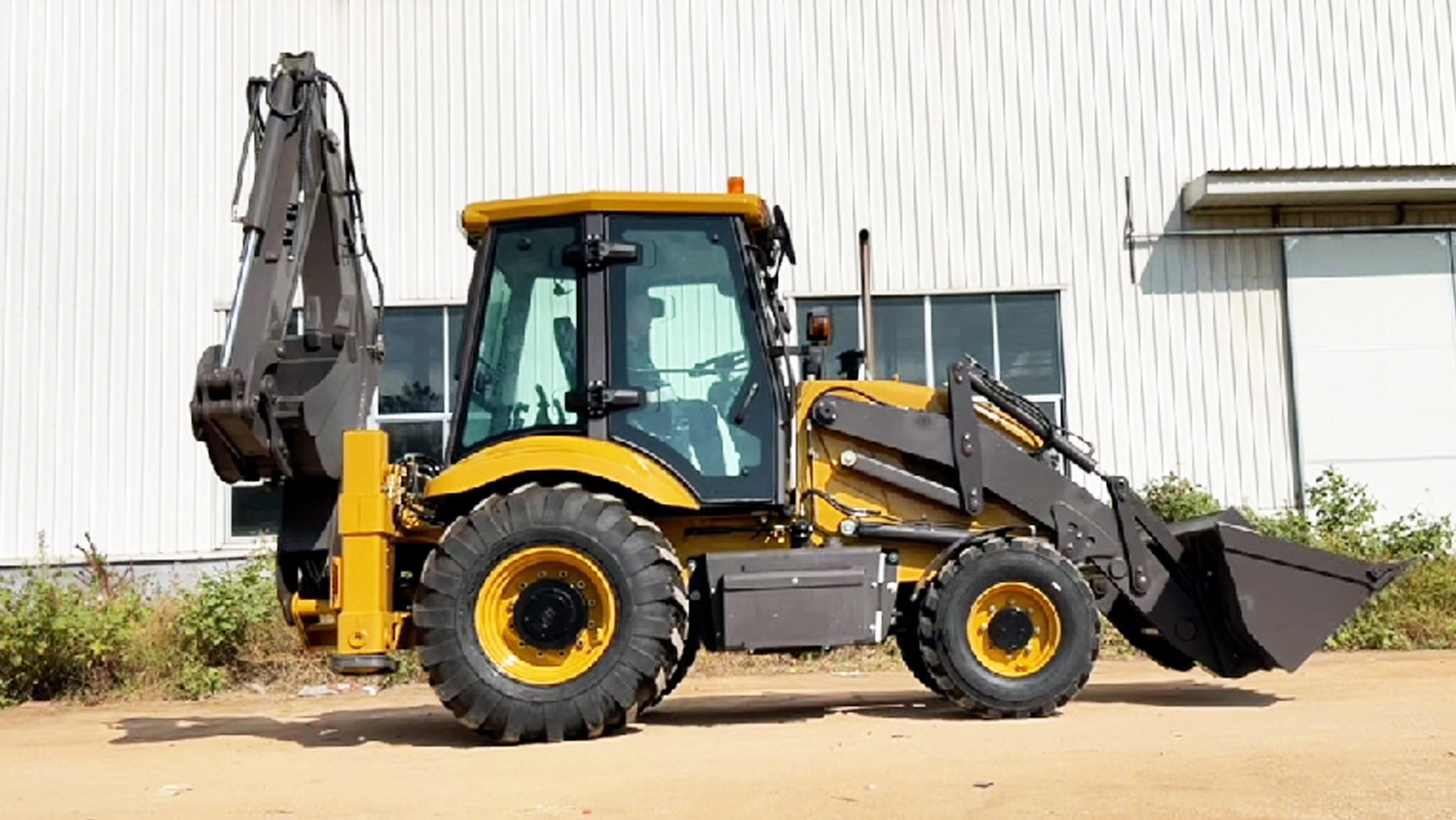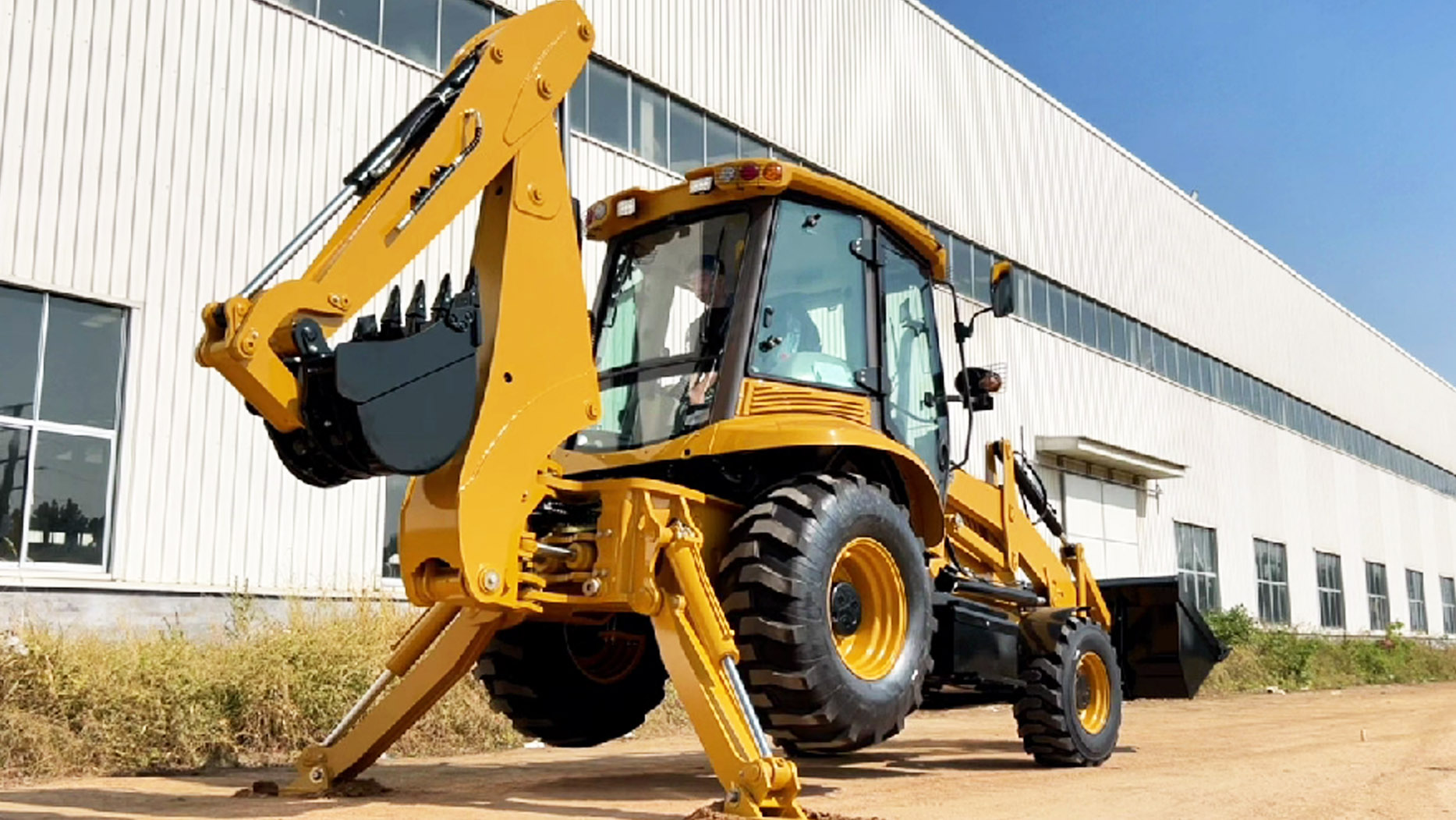Introduction
A backhoe is one of the most versatile and widely used pieces of heavy equipment in the construction industry. Recognized for its distinct design featuring a digging bucket on the end of a two-part articulated arm at the rear and a loading bucket at the front, the backhoe combines the functionality of multiple machines into one compact unit. Since its invention in the 1940s, backhoes have evolved significantly, incorporating advanced hydraulic systems and attachments that enhance their efficiency and adaptability.
The primary purpose of a backhoe in construction is to perform excavation, material handling, trenching, and other essential site preparation tasks. Due to its mobility and multi-functionality, a backhoe is a preferred choice for construction companies that require a cost-effective yet powerful machine for various operations. This article explores the essential roles of backhoes in construction, their advantages, their applications in different projects, and how they compare to other heavy machinery.
1. Key Functions of a Backhoe in Construction
Backhoes serve several crucial roles in construction projects. Their ability to perform multiple tasks efficiently makes them invaluable for various construction operations.
Excavation and Digging
One of the primary functions of a backhoe is excavation. It is used for digging trenches for foundations, sewer lines, and underground utilities. With its powerful hydraulic arm, a backhoe can dig with precision and efficiency, making it ideal for urban and rural construction sites.
Material Handling
Backhoes are often used for loading and transporting materials such as soil, gravel, and construction debris. The front bucket can scoop and move materials quickly, reducing the need for additional manpower and machinery.
Demolition Work
While not as powerful as a dedicated demolition excavator, a backhoe can handle small-scale demolition projects. It can break down concrete structures, remove old pavements, and assist in clearing sites for new construction.
Landscaping and Grading
Backhoes are frequently used for landscaping tasks such as leveling ground, clearing debris, and preparing sites for construction. The precision of the rear digging arm and the front bucket allows operators to create even surfaces efficiently.
Lifting and LoadingEquipped with various attachments, a backhoe can function as a mini crane for lifting heavy materials and placing them where needed. This capability is particularly useful in construction projects that require careful material placement, such as laying pipes or positioning concrete blocks.
2. Advantages of Using a Backhoe in Construction
A backhoe’s versatility and efficiency make it a valuable asset in the construction industry. Here are some key advantages of using a backhoe:
Versatility
One of the biggest advantages of a backhoe is its ability to perform multiple functions. With the right attachments, it can be used for digging, lifting, drilling, and grading, eliminating the need for multiple machines.
Compact Design
Compared to larger excavators and loaders, backhoes are more compact, allowing them to operate in confined spaces. This makes them ideal for urban construction sites where maneuverability is crucial.
Cost-Effectiveness
A backhoe provides excellent value for money as it combines the functions of both an excavator and a loader. Instead of investing in multiple machines, construction companies can rely on a backhoe for various tasks, reducing overall equipment costs.
Efficiency and Productivity
Backhoes can complete tasks faster than manual labor, improving overall efficiency on a construction site. The ability to quickly switch between digging and loading operations also enhances productivity.
Mobility
Unlike larger excavators, which require transportation via trailers, backhoes can travel on roads, making it easier to move them between job sites. This adds to their convenience and practicality in construction operations.
3. Types of Construction Projects That Use Backhoes
Backhoes are used in various construction projects due to their adaptability. Here are some common applications:
Residential Construction
In home-building projects, backhoes are used for digging foundations, installing drainage systems, and landscaping yards. Their ability to work in tight spaces makes them perfect for residential construction sites.
Commercial and Industrial Projects
For large-scale developments, backhoes assist in site preparation, trenching for electrical and plumbing installations, and material handling. Their reliability ensures smooth operations on commercial construction sites.
Roadwork and Infrastructure
Backhoes are commonly used in road construction for digging trenches, installing drainage systems, and clearing debris. Their ability to work efficiently on road surfaces makes them a valuable asset in infrastructure development.
Agricultural and Rural Construction
Backhoes play a crucial role in farm and rural construction projects. They are used for irrigation digging, land leveling, and fence post installation, helping improve agricultural productivity and land management.
4. Comparing Backhoes with Other Heavy Equipment
While backhoes are versatile, they are not always the best choice for every construction task. Here’s how they compare to other heavy machinery:
Backhoe: More versatile for smaller jobs, can travel on roads, better suited for multi-functional use.
Excavator: More powerful, better for large-scale excavation and demolition projects, but requires transportation between sites.
Backhoe vs. Skid Steer Loader
Backhoe: Offers both digging and loading capabilities.
Skid Steer Loader: More maneuverable in tight spaces, better suited for loading and grading tasks but lacks digging depth.
Backhoe vs. Bulldozer
Backhoe: Better for precision tasks like trenching and material handling.
Bulldozer: Superior for heavy earthmoving and grading over large areas.
Conclusion
The backhoe remains an essential piece of equipment in the construction industry due to its versatility, efficiency, and cost-effectiveness. Whether for excavation, material handling, landscaping, or small-scale demolition, backhoes play a vital role in various construction projects.
Choosing the right equipment for a construction job depends on the specific needs of the project. While backhoes offer a balance between power and maneuverability, other machinery may be more suitable for specialized tasks. However, for companies seeking an all-in-one solution that enhances productivity and reduces operational costs, investing in a backhoe is a smart decision.
As technology advances, modern backhoes are becoming more efficient, environmentally friendly, and equipped with smart features that further improve their performance. With their continued evolution, backhoes will remain a cornerstone of the construction industry for years to come.
Post time:Apr.11.2025



